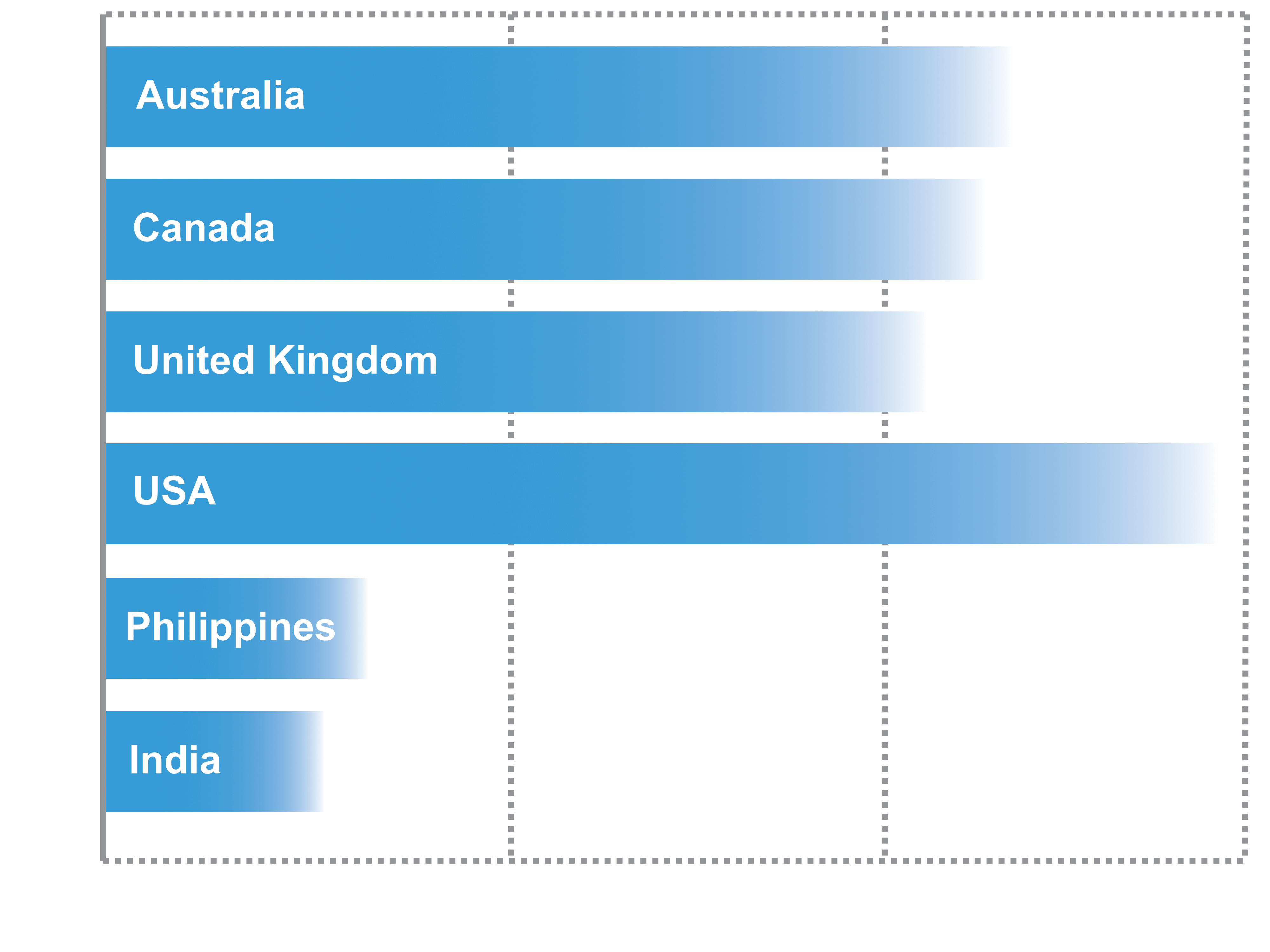
In today’s competitive landscape, businesses are constantly seeking ways to streamline operations, reduce costs, and improve overall efficiency. Outsourcing is one of the most effective strategies for achieving these objectives. By delegating specific tasks or services to third-party providers, companies can focus on their core functions while tapping into specialized expertise.
But why businesses should outsource? It’s a game-changer so let’s explore its benefits, importance, and the role it will play in the future of business.
Benefits of Why Businesses Should Outsource
1. Cost Savings
One of the primary reasons businesses outsource is to reduce operational costs. Hiring and training in-house employees for specialized roles can be expensive, especially when considering salaries, benefits, and overhead costs. Outsourcing allows businesses to access skilled professionals at a fraction of the cost, often in regions where labor is more affordable.
2. Access to Expertise
It offers businesses access to a global pool of talent. Whether it's IT services, customer support, or marketing, businesses can work with professionals who have the exact skills needed to accomplish the task efficiently. This access to expertise is especially valuable for smaller companies that may not have the resources to hire full-time specialists.
3. Focus on Core Business Activities
By delegating non-core tasks, companies can concentrate on their primary strengths. This means dedicating more time and resources to activities that directly contribute to growth, such as product development or customer relations while leaving administrative or technical tasks to external experts.
4. Scalability
Outsourcing offers flexibility and scalability. As a business grows, its operational needs also increase. Outsourcing allows businesses to scale services up or down based on demand, without the hassle of hiring and training additional staff. This adaptability is crucial for businesses looking to expand efficiently.
5. Improved Efficiency
With outsourcing, tasks are often handled by specialized professionals who can complete them faster and with higher accuracy. This improvement in efficiency translates to better service delivery, faster turnaround times, and ultimately higher customer satisfaction.
6. Risk Management
Outsourcing can help businesses manage risk more effectively. When companies outsource certain tasks to experts, they reduce the risk of errors and non-compliance. For example, outsourcing legal or accounting services ensures that the business adheres to regulations, reducing the potential for costly mistakes.
Tips on How to Outsource for Business
Define Clear Goals and Objectives
It's crucial to clearly define your goals before starting the outsourcing process. Outline your objectives and the specific outcomes you expect from outsourcing.
Choose the Right Service Provider
Research potential outsourcing partners thoroughly. Look for companies with proven track records, expertise in your industry, and strong client testimonials. Compatibility is crucial for successful collaboration.
Set Clear Communication Channels
Successful outsourcing relies heavily on strong communication. Establish clear communication channels and protocols to ensure that both parties are aligned on goals, timelines, and expectations.
Monitor Performance
Once you’ve outsourced a task, it’s important to monitor performance regularly. Set key performance indicators (KPIs) to measure success and ensure that the outsourced service is delivering value to your business.
Start Small
If you’re new to outsourcing, start with small tasks to test the waters. This allows you to assess the provider’s performance and build trust before outsourcing larger, more critical functions.
The Future of Outsourcing in Business
The future of outsourcing in business is set to be shaped by technological advancements and a growing global talent pool. With the rise of automation and AI, routine tasks will increasingly be handled by machines, allowing businesses to outsource more complex and strategic functions that require human expertise. Globalization will continue to provide access to skilled professionals from diverse markets, making outsourcing an even more attractive option for companies looking to reduce costs while improving efficiency. Additionally, there will be a greater focus on specialized services, with businesses seeking niche experts for highly technical or industry-specific tasks. As sustainability and ethical practices gain importance, businesses will increasingly prioritize outsourcing partners who align with responsible and transparent labor practices.
Conclusion
Outsourcing is no longer just a cost-cutting measure; it’s a strategic tool for business growth, innovation, and efficiency. By outsourcing, businesses can focus on their core strengths, access specialized expertise, and stay competitive in a fast-changing market. As the business landscape continues to evolve, the future of outsourcing will bring new opportunities for companies to thrive in a global, technology-driven economy.
Compute potential savings for your remote staff and virtual team member
Build Your Global Team and Save up to 70% on Labor Cost.
Recent Articles
About Outsource Calculator
Outsource Calculator helps boost your profits, increases quality and efficiency, and allows your business to scale quickly without expensive overhead.
Empowering
Get a FREE Quote & Save 70% on Labor costs!
The Outsource Calculator estimates the savings from outsourced staffing solutions compared to hiring locally, which is intended for informational purposes only. It provides approximate pricing only may not be accurate and should only be used as a guide and is not an official quote. You should not make any decisions based simply on the information provided. Outsource Calculator pricing is based on the typical employee salaries for each role, including all employee payroll taxes, government-mandated employee costs, employee technology required, office space, hardware costs, IT support, recruiting, training, onboarding, and all HR functions which provide a more accurate comparison with the outsourced staffing compared to local hiring.
United States
United Kingdom
Australia
Canada
Europe
Copyright © 2025 OutsourceCalculator.com All rights reserved. Privacy Policy Terms of Use




